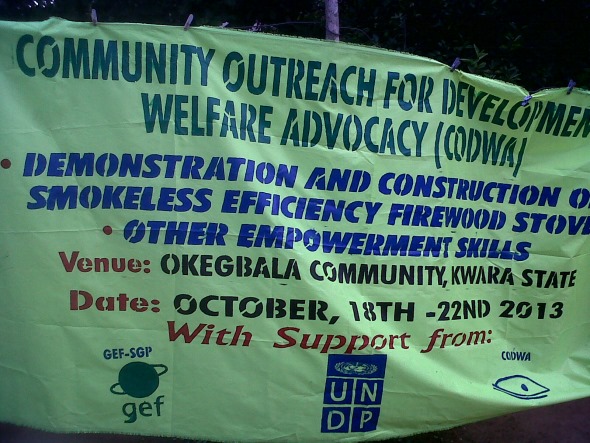There was maximum participation from all sections of the community especially women and children whose needs dominated the project activities. That is, provision of working borehole to ease their sufferings of looking for water daily; and also save energy smokeless stove to save them from wandering in the bush looking for firewood. The borehole is centrally located where 75 houses access clean and drinkable water within 2 to 3 minutes from their houses. Every household have access to not less than 100 liters of water daily without stress.
The 100 numbers of smokeless save energy stoves constructed saves 70% firewood used before the project. Majority of the women interviewed confirmed using ten (10) numbers of firewood but it reduced to three (3) when they started using the save energy stove per cooking. the y women have also acquired the skills to construct the stove themselves.
Two of the five project committee members are women and they have participated actively, contributing to key decisions. Seventy-six out of the One hundred trained are women while thirty are men. Three blocks of twelve (12) toilets were also constructed with one toilet in each of the three sections of the community to reduce to barest minimum open defecation and community members are making use of the toilets. It takes less than two minutes to get to the toilet from their houses. Six hundred and fifty citrus orange trees planted for Income Generation to reduce poverty among the disabled persons; four acres of land were afforested as a result of the citrus orange trees.
The ECWA hospital in the community is patronized by five states of Kwara, Kogi, Ekiti, Niger and Osun for leprosy treatment and also it is the major center for Tuberculosis treatment in Kwara state. In all, over 3,500 benefit from the borehole facility because it is the only clean source with adequate water.
LESSONS LEARNT:
To achieve evidence based interventions, it is necessary to carry out participatory needs accessessement
The community people should take ownership of the project
Respect the view of community members but be firm not to compromise issue of best practices
Ensure follow up and follow through
Learning is a continuous process







